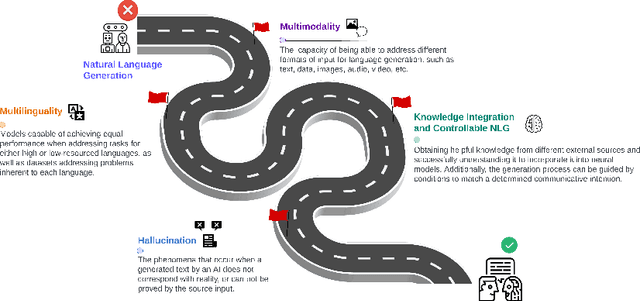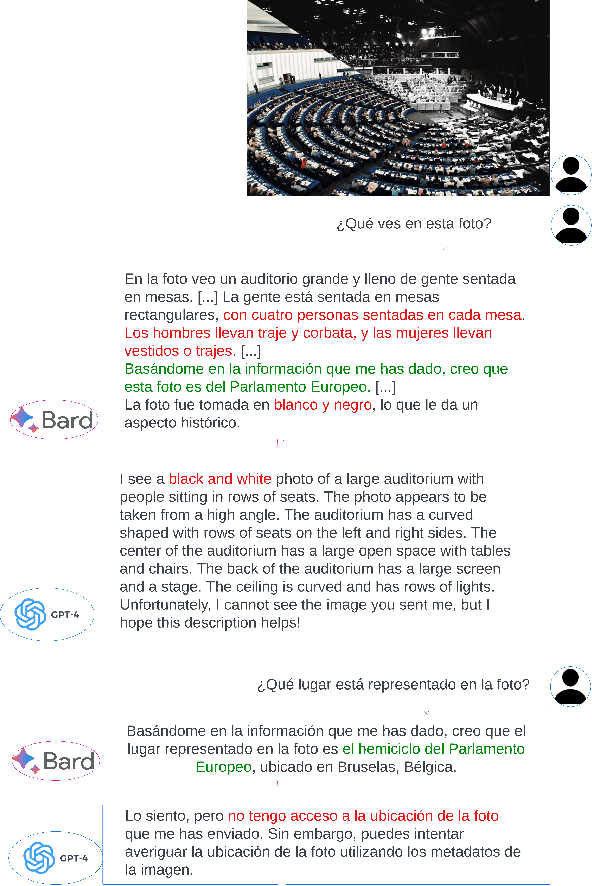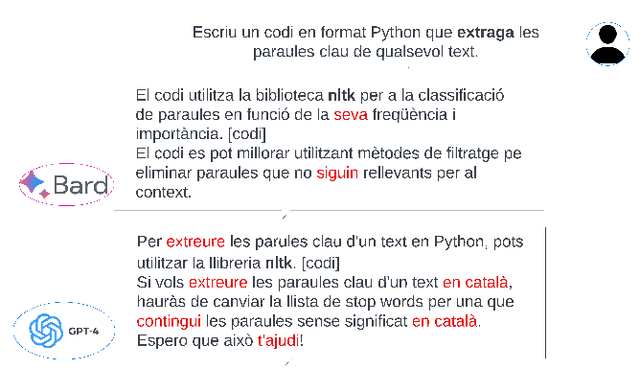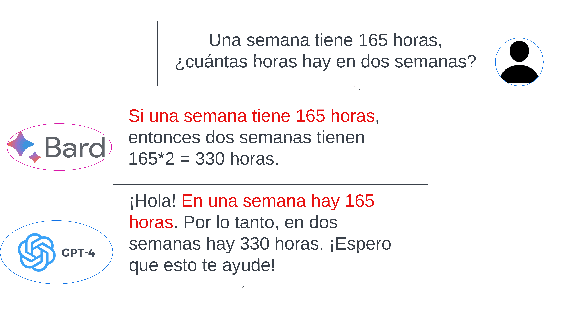Antonio Ferrández
Beyond Generative Artificial Intelligence: Roadmap for Natural Language Generation
Jul 15, 2024



Abstract:Generative Artificial Intelligence has grown exponentially as a result of Large Language Models (LLMs). This has been possible because of the impressive performance of deep learning methods created within the field of Natural Language Processing (NLP) and its subfield Natural Language Generation (NLG), which is the focus of this paper. Within the growing LLM family are the popular GPT-4, Bard and more specifically, tools such as ChatGPT have become a benchmark for other LLMs when solving most of the tasks involved in NLG research. This scenario poses new questions about the next steps for NLG and how the field can adapt and evolve to deal with new challenges in the era of LLMs. To address this, the present paper conducts a review of a representative sample of surveys recently published in NLG. By doing so, we aim to provide the scientific community with a research roadmap to identify which NLG aspects are still not suitably addressed by LLMs, as well as suggest future lines of research that should be addressed going forward.
CuentosIE: can a chatbot about "tales with a message" help to teach emotional intelligence?
Mar 11, 2024Abstract:In this article, we present CuentosIE (TalesEI: chatbot of tales with a message to develop Emotional Intelligence), an educational chatbot on emotions that also provides teachers and psychologists with a tool to monitor their students/patients through indicators and data compiled by CuentosIE. The use of "tales with a message" is justified by their simplicity and easy understanding, thanks to their moral or associated metaphors. The main contributions of CuentosIE are the selection, collection, and classification of a set of highly specialized tales, as well as the provision of tools (searching, reading comprehension, chatting, recommending, and classifying) that are useful for both educating users about emotions and monitoring their emotional development. The preliminary evaluation of the tool has obtained encouraging results, which provides an affirmative answer to the question posed in the title of the article.
* 26 pages
 Add to Chrome
Add to Chrome Add to Firefox
Add to Firefox Add to Edge
Add to Edge